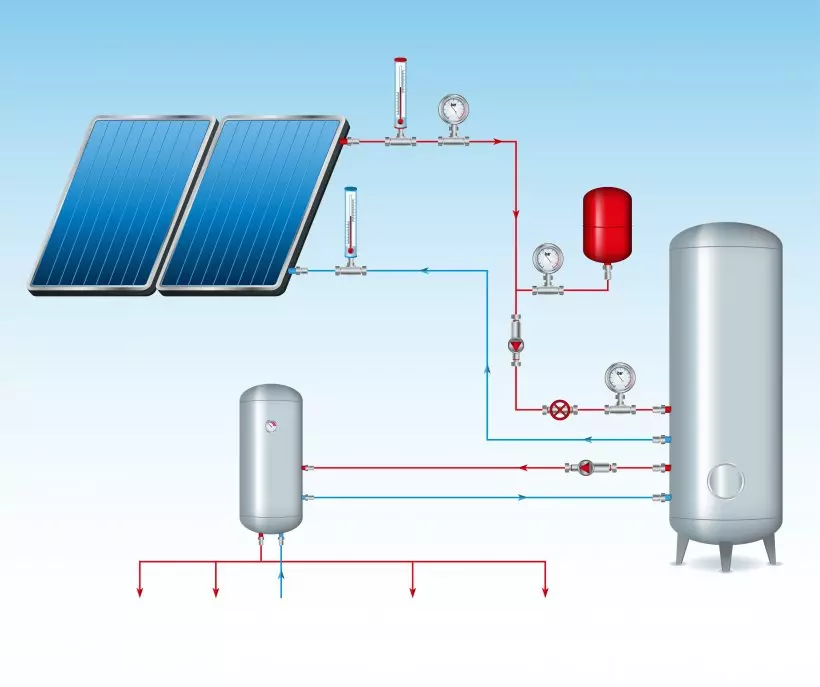Your water heater is a major piece of equipment that’s used on a daily basis. It’s used so often, water heating accounts for roughly 18% of annual energy use. There are ways to use your water heater for maximum energy efficiency, but if you really want to cut energy use you may be considering a solar water heater.
There are actually a few different types of solar water heaters. Each one has a storage tank and collector. They also all use the sun’s thermal energy to heat the water. Solar water heaters are categorized by the circulation system and collector type.
Solar Water Heater Circulation Systems
- Active/Forced-Circulation – Active circulation systems are common in the U.S. It uses an electric pump to move water from the collectors to storage containers.
- Closed-Loop/Indirect – With this type of system heat is transferred from the sun to water using a non-freezing liquid. Closed-loop systems are primarily used in cold climates where freezing is common.
- Direct – A direct system circulates water to the collector where it is warmed directly by the sun’s solar energy. You’ll see this system in warm climates.
- Passive – This type of system uses natural convection rather than pumps to move water.
Solar Water Heater Collector Types
- Batch – Water can stay in these collectors for a long time, which is good if demand is low. Longer storage periods also heat the water to higher temperatures.
- Evacuated Tube – This is the most efficient collector type. The tubes act like a thermos that lose very little heat while stored.
- Flat-Plate – A flat-plate collector usually has copper tubes that connect to a flat plate assembly in an insulated box.
A solar water heater is an investment, especially when you compare it to a standard water heater. And you need to have space on your roof or side of the house for a small solar system. But do the benefits make up for the added cost? Let’s find out.
Less Energy Use
The most obvious benefit of a solar water heater over a standard water heater is the reduced energy use. On average, you’ll see about a 50% reduction in water heater energy use. But if you live in a sunny area and have optimal placement for solar capture, you can reduce energy use by as much as 90%.
Fewer Carbon Emissions
Because you’re harnessing energy from the sun, you’re lowering your carbon footprint compared to using a standard water heater that uses more energy from fossil fuels. Choose an ENERGY STAR solar water heater and you’ll reduce carbon emissions by 50%. On average, a solar water heater cuts carbon emissions by 4,000 pounds every year.
Less Dependency
When systems are powered by solar energy there’s less concern over power outages that can knock out your entire home. With a solar water heater you’d at least have hot water during the outage.
Lower Maintenance
Solar water heaters need very little maintenance. You should inspect your solar water heater at least once a year as a part of the regular maintenance measures that are taken.
Longer Lifespan
A solar water heater will last 20 years. Standard gas and electric water heaters have a lifespan of just 8-12 years. The longer lifespan is another way you can recoup the higher upfront costs of installing a solar water heater.
Possible Tax Breaks
You may be able to get local, state and/or federal tax deductions or credits for switching to a solar water heater. Just keep in mind, if you are building a new home you may not qualify for the tax breaks.
Verde Energy can make any water heater use less fossil fuels with our renewable energy plans. Even without solar-powered equipment you can feel better about the electricity you use when you know it’s green and clean. Check to see if Verde Energy electricity plans are available in your area.



